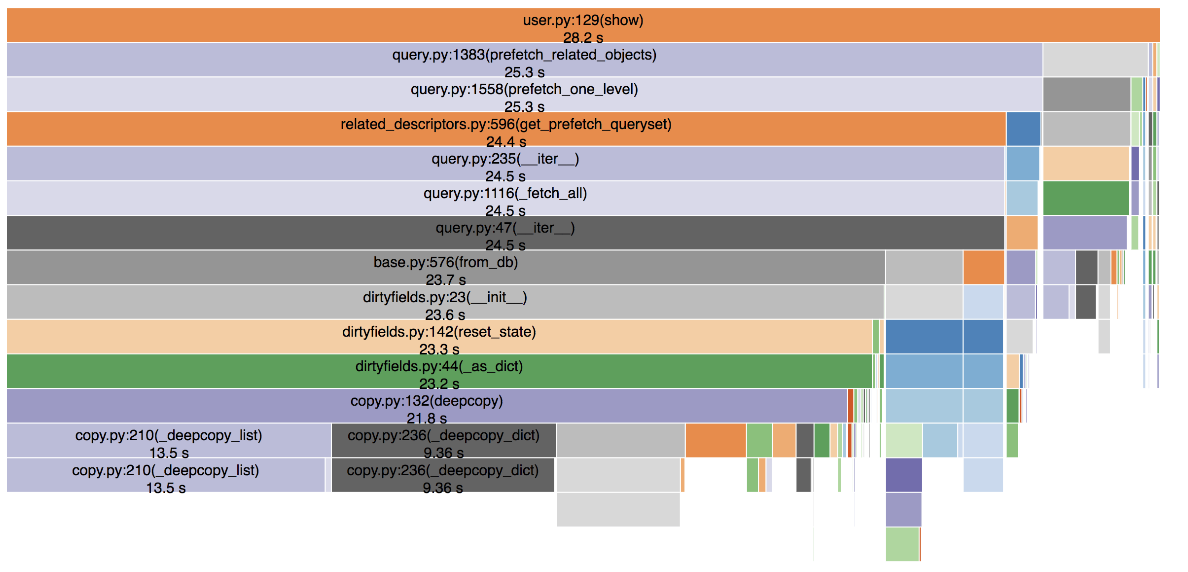Tracking dirty fields on a Django model instance. Dirty means that field in-memory and database values are different.
This package is compatible and tested with the following Python & Django versions:
| Django | Python |
|---|---|
| 2.2, 3.0, 3.1 | 3.8, 3.9 |
| 3.2, 4.0 | 3.8, 3.9, 3.10 |
| 4.1 | 3.8, 3.9, 3.10, 3.11 |
| 4.2 | 3.8, 3.9, 3.10, 3.11, 3.12 |
| 5.0 | 3.10, 3.11, 3.12 |
$ pip install django-dirtyfieldsTo use django-dirtyfields, you need to:
- Inherit from
DirtyFieldsMixinin the Django model you want to track.
from django.db import models
from dirtyfields import DirtyFieldsMixin
class ExampleModel(DirtyFieldsMixin, models.Model):
"""A simple example model to test dirty fields mixin with"""
boolean = models.BooleanField(default=True)
characters = models.CharField(blank=True, max_length=80)- Use one of these 2 functions on a model instance to know if this instance is dirty, and get the dirty fields:
is_dirty()get_dirty_fields()
>>> model = ExampleModel.objects.create(boolean=True,characters="first value")
>>> model.is_dirty()
False
>>> model.get_dirty_fields()
{}
>>> model.boolean = False
>>> model.characters = "second value"
>>> model.is_dirty()
True
>>> model.get_dirty_fields()
{'boolean': True, "characters": "first_value"}Consult the full documentation for more information.


